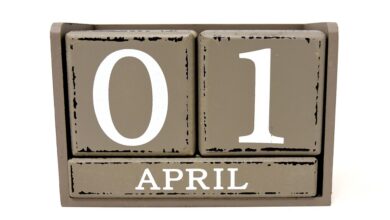
Unlocking Your Time Management Skills: Harnessing the Power of a Calendar
Time is our most valuable resource, and yet it often feels as though we never have enough of it. In today’s fast-paced world, we are constantly bombarded with demands on our time, from work commitments to social engagements to personal responsibilities. It’s no wonder that many of us struggle with time management, feeling overwhelmed and never quite managing to get a grip on our schedules. However, the good news is that there are tools and techniques available to help us take control of our time and make the most of every minute. One such tool is the humble calendar, a simple yet powerful tool that, when used effectively, can revolutionize the way we manage our time.
In this article, we will explore the importance of time management, the benefits of using a calendar, and how to harness its power to unlock your time management skills.
The Importance of Time Management
Time management is the process of organizing and planning how to divide your time between specific activities. It is a crucial skill to have in both our personal and professional lives. Effective time management allows us to allocate our time to the tasks that truly matter, enabling us to work smarter, not harder. It also helps to reduce stress, increase productivity, and improve our overall quality of life.
Without good time management skills, we risk feeling overwhelmed, unproductive, and constantly playing catch-up. We may find ourselves missing deadlines, forgetting important appointments, and struggling to find the time to pursue our personal goals and passions. In contrast, mastering time management enables us to take control of our time, leading to greater efficiency, improved focus, and a sense of accomplishment.
The Benefits of Using a Calendar
One of the most effective tools for time management is the calendar. A calendar provides a visual representation of your schedule, allowing you to see at a glance what you have planned and when. This makes it easier to prioritize tasks, identify potential conflicts, and allocate your time accordingly. A well-organized calendar can help you stay on top of deadlines, appointments, and important events, ensuring that nothing falls through the cracks.
Furthermore, using a calendar can help to create a sense of structure and routine in your daily life. By scheduling specific times for work, rest, and leisure activities, you can establish a healthy balance and avoid the feeling of being constantly overwhelmed. This can lead to increased productivity, reduced stress, and a greater sense of control over your time.
How to Harness the Power of a Calendar
Now that we understand the importance of time management and the benefits of using a calendar, let’s explore how to harness the power of a calendar to unlock your time management skills.
1. Choose the Right Tool
First and foremost, it’s essential to choose the right calendar tool for your needs. While traditional paper calendars can be effective, many people find digital calendars to be more convenient and versatile. There are numerous calendar apps available, such as Google Calendar, Microsoft Outlook, and Apple Calendar, each offering a range of features to help you manage your schedule. Take the time to explore different options and find a calendar tool that works best for you.
2. Set Clear Goals
Before you start filling in your calendar, take the time to set clear goals and priorities. What are the most important tasks and commitments that you need to accommodate in your schedule? By establishing clear goals, you can better allocate your time and ensure that you are focusing on what truly matters.
3. Block Out Time for Important Tasks
Once you have identified your priorities, it’s time to block out time in your calendar for important tasks and commitments. This might include work meetings, personal appointments, or dedicated time for working on specific projects. By scheduling specific time slots for these activities, you are less likely to get sidetracked and more likely to stay focused on the task at hand.
4. Be Realistic
It’s important to be realistic when planning your schedule. Don’t overcommit yourself or underestimate the time required for certain tasks. Allow for buffer time between activities to account for unexpected delays, and be prepared to adjust your schedule as needed.
5. Regularly Review and Update
A calendar is a living document that should be regularly reviewed and updated. Make it a habit to review your calendar at the start of each day or week, checking for any new commitments or changes that need to be accommodated. This will help you stay on top of your schedule and avoid any unpleasant surprises.
6. Use Reminders and Alerts
Most calendar tools offer the ability to set reminders and alerts for upcoming events and deadlines. Take advantage of this feature to ensure that you never miss an important appointment or task. Set reminders for key events, and consider using recurring reminders for regular activities to help keep you on track.
7. Be Flexible
While having a well-organized schedule is important, it’s also essential to be flexible and adaptable. Unexpected events can often arise, requiring you to adjust your plans at the last minute. Be prepared to make changes to your calendar as needed, and don’t be afraid to reschedule or re-prioritize tasks when necessary.
By harnessing the power of a calendar and incorporating these strategies into your time management approach, you can unlock your time management skills and take control of your schedule. With a well-organized and thoughtfully planned calendar, you can increase productivity, reduce stress, and make the most of every minute. Remember, time is a precious resource, and by managing it effectively, you can achieve greater balance and fulfilment in your personal and professional life.





